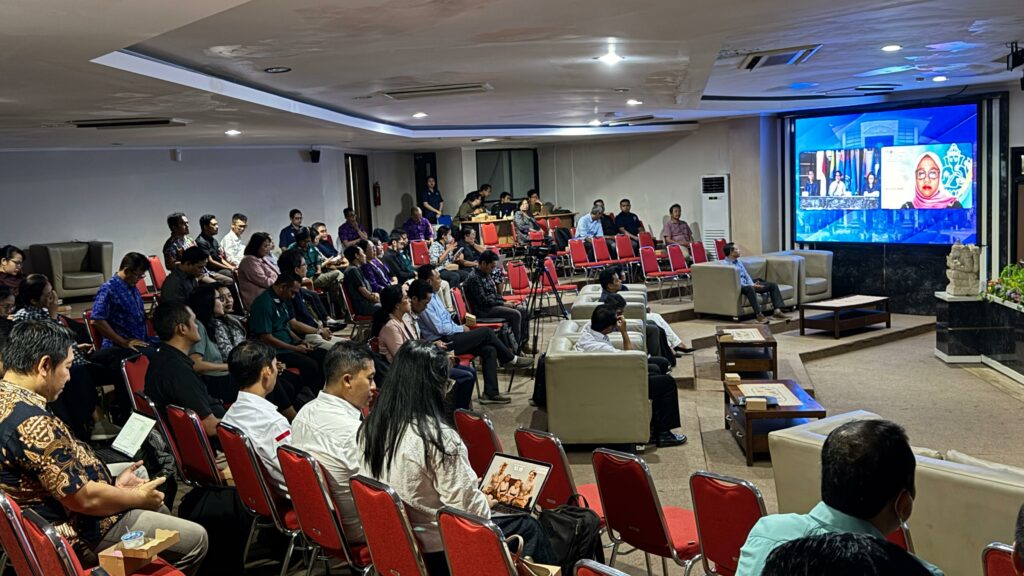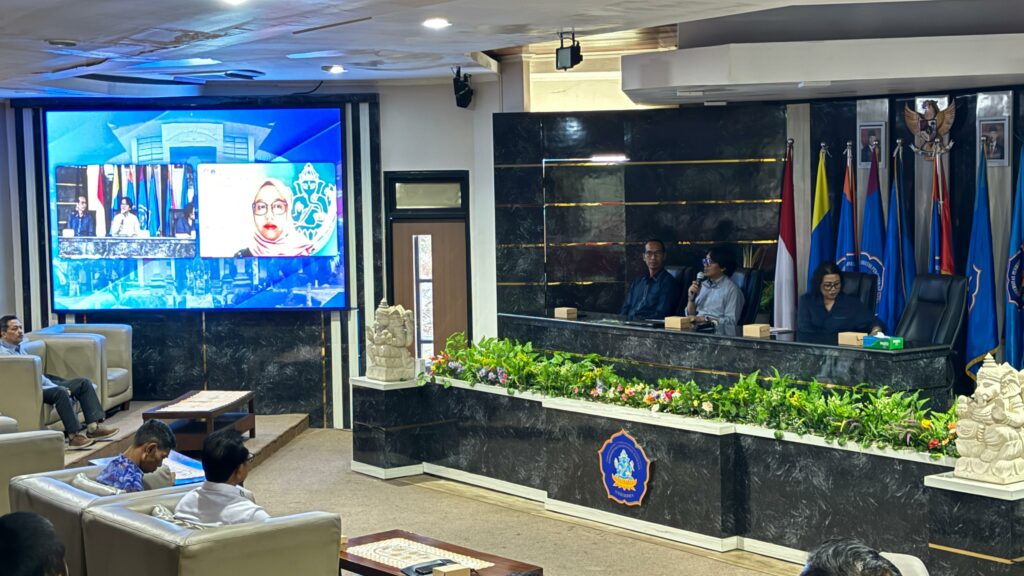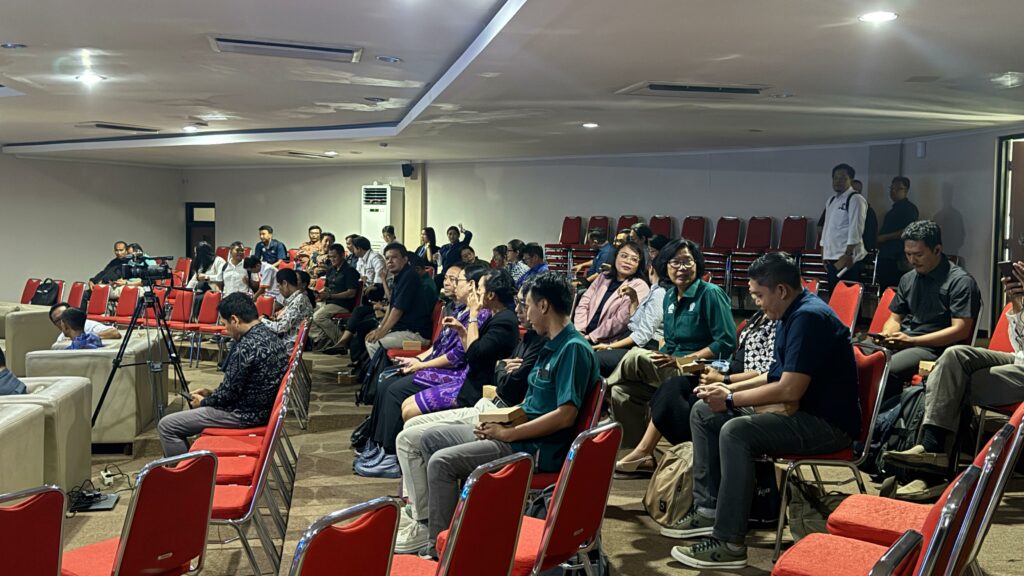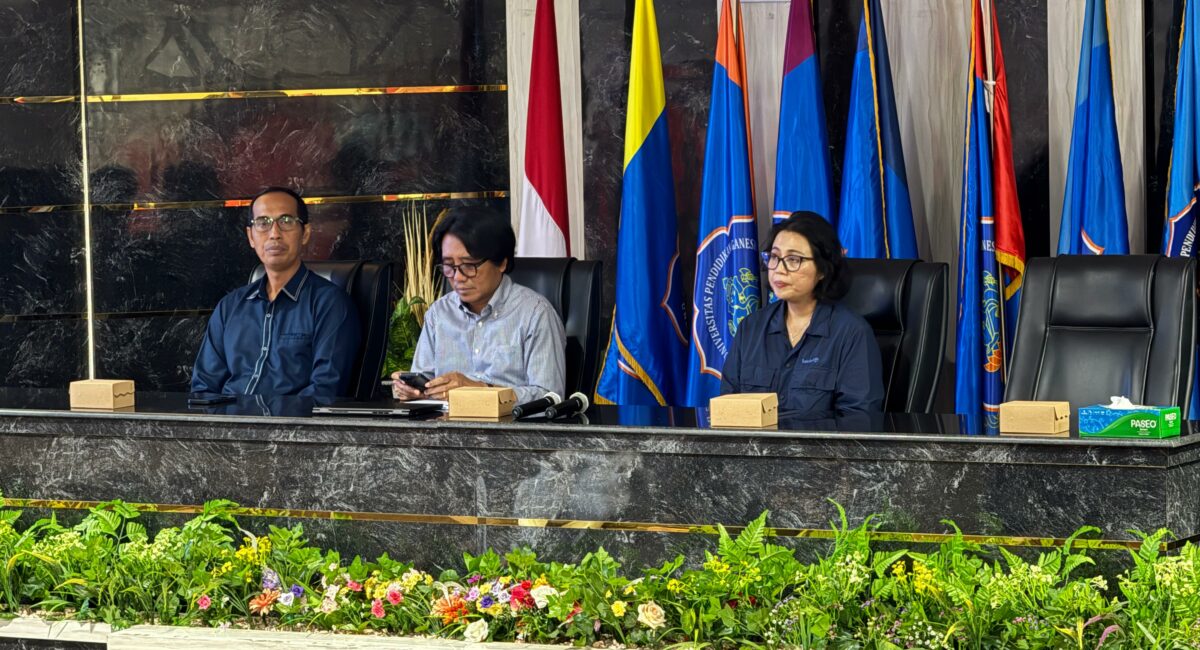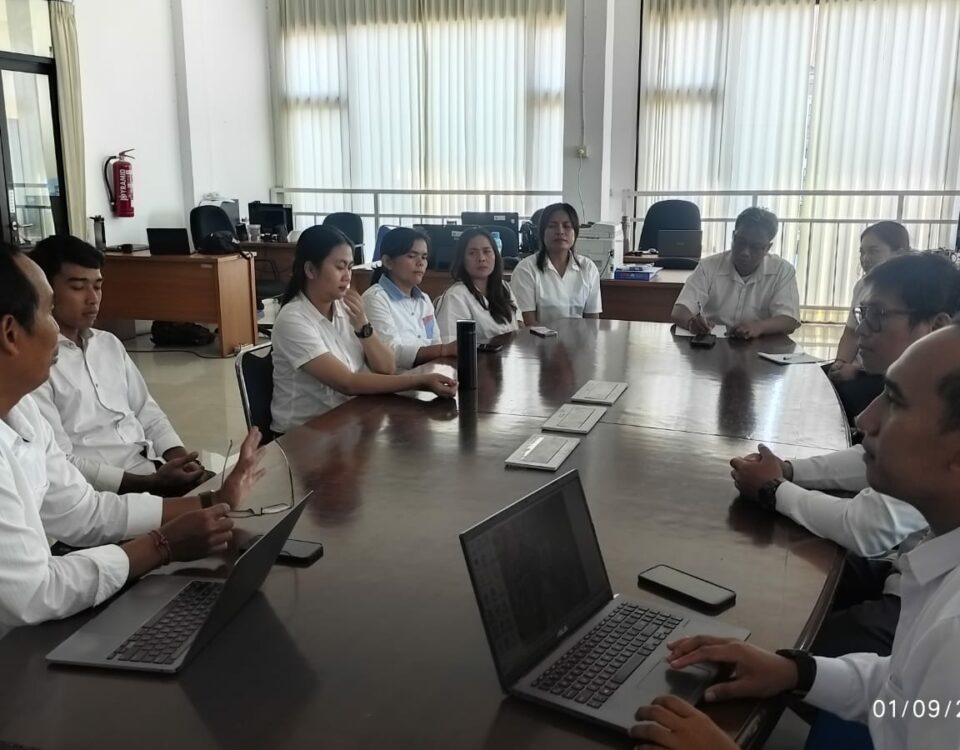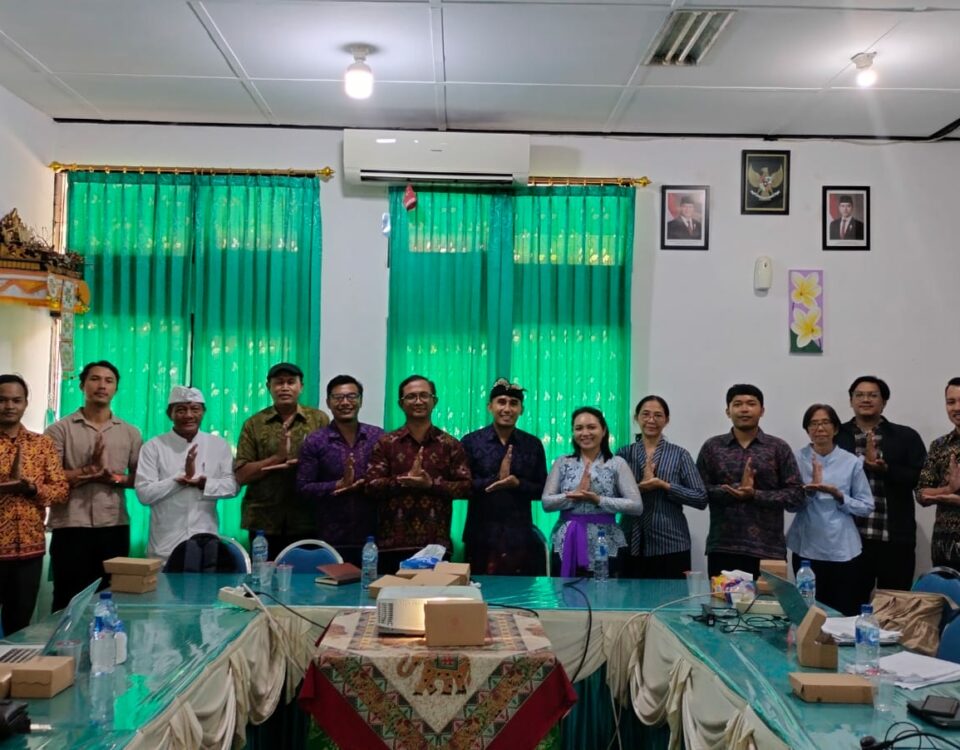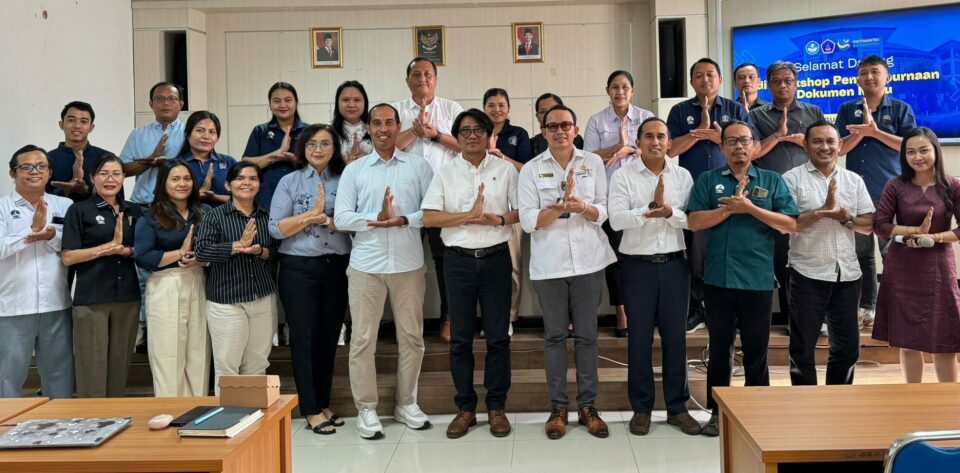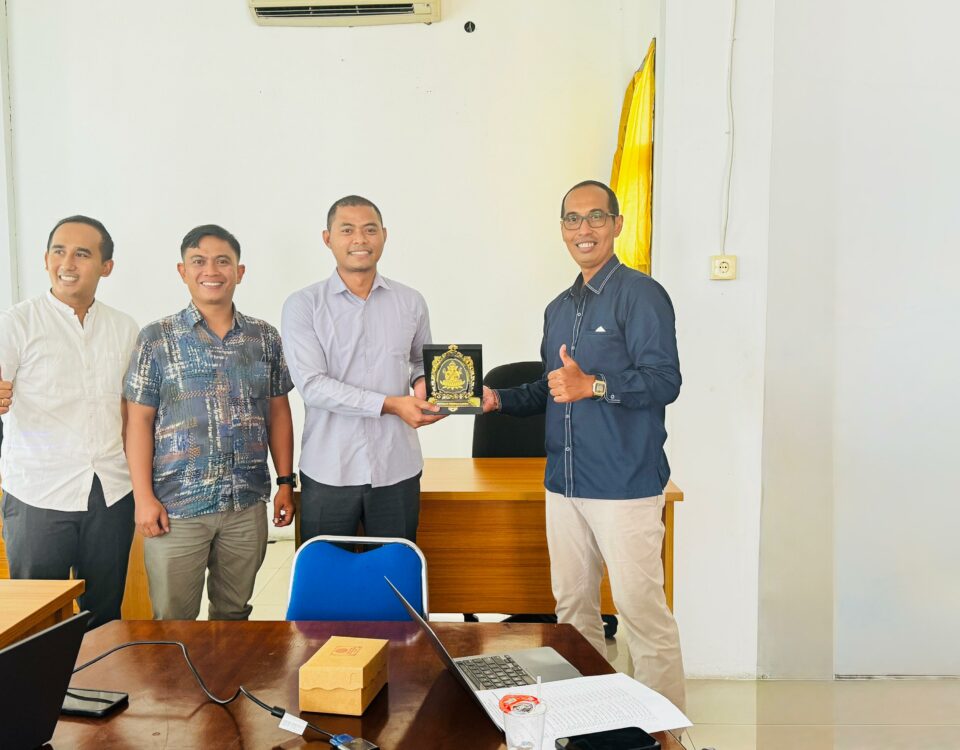On Wednesday, September 3, 2025, the Institute for Quality Assurance and Learning Development through the Quality Assurance Center, International Accreditation Division, held a seminar entitled “Accelerating Global Reputation through International Accreditation ACQUIN and ASIIN” in a hybrid format. The participants attended both onsite at Ganesha 3, Undiksha Rectorate Building, and online via Zoom meeting. The invitees included the Head of the Quality Assurance Center, Prof. Dr. Made Agus Dharmadi, S.Pd., M.Pd., the Director and Deputy Director of the Postgraduate Program, faculty leaders including Deans and Vice Deans I (academic affairs), Department Chairs, Study Program Coordinators, as well as Heads and Secretaries of the Faculty Quality Assurance Units at Undiksha. This activity was an initiative of the Quality Assurance Center in follow-up to the Regulation of the Minister of Higher Education, Science, and Technology of the Republic of Indonesia Number 39 of 2025 concerning Quality Assurance in Higher Education, which states that the orientation of higher education quality assurance must meet global standards and enhance international competitiveness through continuous improvement of academic quality. The seminar was officially opened by the Vice Rector I of Universitas Pendidikan Ganesha, Prof. Dr. Gede Rasben Dantes, S.T., M.T.I., who, in his remarks, emphasized the importance for all Undiksha academics to continuously pursue international quality standards by improving curricula, teaching methods, and research to be on par with leading universities worldwide. Undiksha’s focus on global recognition through international accreditation will strengthen the institution’s reputation in the eyes of the world, open opportunities for collaboration, and attract students and lecturers from abroad. Through international accreditation, Undiksha will also enhance international mobility for students and lecturers; students will find it easier to continue their studies or participate in exchange programs overseas, while lecturers will be able to collaborate in international research projects.
The seminar also featured a keynote presentation by Prof. Endah Retnowati, S.Pd., M.Ed., Ph.D., Secretary of the Directorate of Quality Assurance at Yogyakarta State University. The speaker provided a comprehensive overview of the Accreditation, Certification and Quality Assurance Institute (ACQUIN) and the Accreditation Agency for Study Programmes of Engineering, Information Science, Natural Sciences, and Mathematics (ASIIN), starting from the main focus of each accreditation body, the European Standards and Guidelines (ESG) as the key criteria for fulfilling international accreditation standards, and guidelines for developing the Self-Assessment Report (SAR). Both ACQUIN and ASIIN apply ESG standards as the primary benchmark to evaluate the quality of study programs and quality management systems in higher education institutions. The accreditation processes of ACQUIN and ASIIN are designed to ensure that universities meet the criteria set within the ESG framework.
The speaker also conveyed that both ACQUIN and ASIIN are non-profit accreditation agencies with the primary focus on accrediting study programs and supporting sustainable quality management systems in higher education institutions. ACQUIN covers social sciences and humanities, while ASIIN focuses on information sciences, natural sciences, and mathematics. Both accreditation agencies are officially recognized under the Decree of the Minister of Education, Culture, Research, and Technology of the Republic of Indonesia Number 236/0/2024. The speaker further emphasized the importance of accelerating higher education institutions in improving academic quality at the international level and the recognition of domestic universities, which are expected to position themselves on equal footing with overseas institutions. In the reflection session of the seminar, it was highlighted that Undiksha must continuously pay attention to graduate quality as well as timely graduation rates as a tangible manifestation of a sustainable quality culture.
The leadership’s expectations for this seminar include strengthening the culture of academic quality through strategic achievements such as: continuous improvement by encouraging all stakeholders to consistently enhance every aspect, from curriculum, facilities, to academic and non-academic services; strengthening research by motivating lecturers and students to produce impactful studies published in reputable international journals; and expanding collaboration by building partnerships with universities and industries across different countries.
With the spirit of accelerating international accreditation, Undiksha aspires to achieve sustainable global recognition. International accreditation is not merely a formal validation, but rather a driver for comprehensive and continuous quality improvement, beginning with relevant curricula, innovative teaching methods, and impactful research.
Undiksha fully supports all efforts of its academic community to continue innovating, strengthening global collaboration, and producing graduates who are not only competent at the national level but also competitive on the international stage, thereby showcasing excellence in the global academic reputation. Undiksha is confident that through collective harmony, it will be able to foster a sustainable quality culture, achieve world-class standards, and make a meaningful contribution to the progress of the nation.
